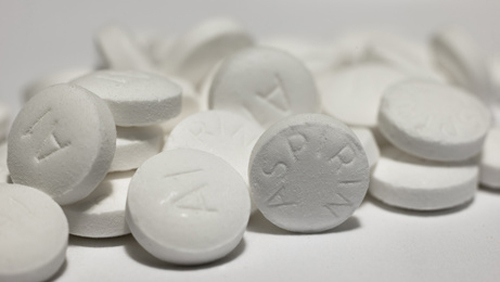Results from a clinical trial following patients for three years have shown that a daily, low dose of aspirin can significantly reduce the risk of recurrence after surgery in colorectal tumors that carry mutations in the PI3K signaling pathway. This is the first biomarker-driven, randomized study to confirm the benefits of aspirin in colorectal cancer.
“Aspirin is being tested here in a completely new context as a precision medicine treatment,” said Anna Martling, MD, PhD, professor of surgery at Karolinska Institutet and chief physician and colorectal surgeon at Karolinska University Hospital. “This is a clear example of how we can use genetic information to personalize treatment and at the same time save both resources and suffering.”
Previous observational and retrospective studies had noted a potential link between aspirin and a lower risk of recurrence in patients with colorectal cancer who carry a specific type of mutations in the PIK3CA gene, which are present in approximately 20% of these patients. However, these findings had not yet been validated in a randomized clinical trial.
Published in The New England Journal of Medicine, results of the trial not only confirmed this link, but also showed that the benefits of aspirin extend to a wider range of mutation types affecting several genes in the PI3K pathway that PIK3CA belongs to, which were present in 37% of the study’s patient population.
The trial recruited nearly 3,000 patients with colon and rectal cancer across 33 hospitals in Sweden, Norway, Denmark, and Finland. Of those patients, more than 1,000 carried relevant PI3K pathway mutations that were divided into two groups: group A alterations, which refer to mutations in exon 9 or 20 of PIK3CA, and group B alterations, which include other moderate or high impact mutations in the PIK3CA, PIK3R1, or PTEN genes.
Both patient groups were randomized to receive either a daily 160 mg dose of aspirin or a placebo over the course of three years. Taking aspirin reduced the rate of recurrence after surgery from 14.1% to 7.7% among patients with group A alternations, and from 16.8% to 7.7% for patients with group B alterations. Aspirin treatment also increased the three-year disease-free survival rate from 81.4% to 88.5% in group A and from 78.7% to 89.1% in group B.
These findings could significantly improve the standard of care of more than a third of colorectal cancer patients with an inexpensive and well-established intervention. “Aspirin is a drug that is readily available globally and extremely inexpensive compared to many modern cancer drugs,” said Martling.
Aspirin is thought to inhibit tumor growth by reducing inflammation and decreasing platelet function, but more research is still needed to understand why its therapeutic effects are significantly stronger on patients with PI3K pathway mutations. “Although we do not yet fully understand all the molecular links, the findings strongly support the biological rationale and suggest that the treatment may be particularly effective in genetically defined subgroups of patients,” said Martling.

